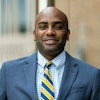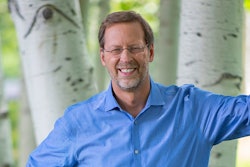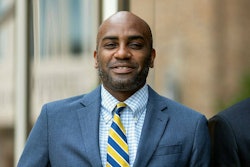Rifts Between Harvard President and Faculty Lead to Summers’ Resignation
By David Pluviose
Harvard President Lawrence H. Summers’ often-stormy five-year presidency, marred by numerous faculty conflicts and resignations in protest over his abrasive leadership style, is the shortest since Dr. Cornelius C. Felton died in office in 1862 after two years at the helm. Summers will officially step down June 30, and former Harvard President Dr. Derek Bok will take the reins on an interim basis until a permanent successor is named.
“I have reluctantly concluded that the rifts between me and segments of the Arts and Sciences faculty make it infeasible for me to advance the agenda of renewal that I see as crucial to Harvard’s future. I believe, therefore, that it is best for the university to have new leadership,” Summers said in a Feb. 21 letter to the Harvard community. Summers’ spokesman, John Longbrake, did not respond to a request for further comment as of press time.
The first official faculty rebuke of Summers’ leadership came in the form of a 218-185 Faculty of Arts and Sciences (FAS) no-confidence vote in March 2005. The vote was a sharp public rebuke of Summers’ managerial style and comments he made suggesting that “intrinsic aptitude” is to blame for the lack of female representation in science and engineering disciplines.
Fellows of Harvard’s governing body, The Harvard Corporation, backed Summers after that no-confidence vote, and tensions between Summers and the FAS thawed. However, the latest faculty uproar concerned the January resignation of Dr. William C. Kirby, who had served just four years as dean of the college. Also, Dr. Ellen Condliffe Lagemann, Harvard’s former dean of the Graduate School of Education, resigned in 2005 after a three-year stint. Both were appointed by Summers and both said they looked forward to a return to teaching, but many on the Faculty Council say Kirby and Lagemann were just the latest in a series of administrators pushed out by Summers.
“Summers was someone who, when he made a bad decision, he didn’t back down. … His inclination was to scream and yell at the person who told him that he didn’t know everything about the issue. His style was to try and scapegoat one of his deans for having made the decision instead of him — that’s was one of the reasons why his deans, I think, were always stepping down,” says a senior professor in Harvard’s Department of Economics, who spoke to Diverse on the condition of anonymity.
Kirby’s resignation prompted Harvard Faculty Council member Judith Ryan to schedule a second no-confidence vote for Feb. 28. Seething faculty resentment of Summers spawned widespread speculation that the vote would be lopsided against him. The Harvard Corporation accepted Summers’ resignation Feb. 21, avoiding the embarrassment of a second successful no-confidence vote in the president of arguably the world’s most respected university.
“While this past year has been a difficult and sometimes wrenching one in the life of the university, we look back on the past five years with appreciation for all that has been accomplished and for the charting of a sound and ambitious forward course,” the Fellows said in a letter to the Harvard community concerning Summers’ departure.
The beginning of the end for Summers’ career at Harvard can be traced to a highly publicized 2001 conflict with then-Harvard African-American studies professor Cornel West. West accused Summers of behaving like “a bull in a China shop” during a verbal confrontation in which Summers criticized West’s scholarship for recording a spoken-word CD and upbraided the professor for missing too much class time due to outside commitments.
“The unfortunate and misguided interference by [Summers] to violate academic freedom and the spirit of academic civility was deeply unfortunate. But it takes nothing away from the stellar career and credentials of West,” says Dr. Manning Marable, Columbia University professor of history and political science and founding director of the University’s Institute for Research in African-American Studies. “Clearly, Harvard’s academic community, even conservatives on the right, had to pause at the kind of amateurish administrative conduct, uncivil behavior and lack of courtesy which characterized the entire regime of Summers. It was deeply unfortunate.”
The rift between West and Summers led to West’s departure for Princeton University in 2002 and the break-up of the African and African-American Studies faculty “Dream Team,” assembled by chairman Dr. Henry Louis Gates Jr. under former Harvard President Dr. Neil L. Rudenstine. Celebrated philosopher Dr. K. Anthony Appiah followed West out the door the same year, and Gates seriously considered accepting an offer from Princeton himself before being persuaded by Summers to stay.
“If one is going to suggest that President Summers — the argument and the affair over Cornel West — caused people to leave, then presumably, his departure could only make the future for African-American studies better,” says the anonymous senior faculty member, who has first-hand knowledge of the circumstances surrounding Appiah’s departure.
Former Harvard Corporation Fellow Conrad K. Harper — its only Black member at the time — cited the West dust-up and a series of highly controversial statements about minorities and women when he resigned in protest last summer. The last straw, said Harper at the time, was a 3 percent raise granted to Summers by the board despite the lack of defined performance benchmarks for the Harvard president.
“I had hoped that the unfortunate incident with Professor Cornel West was an aberration. Last fall, your comments at a Native American conference insulted the attendees. Last January, your insinuation at a [National Board of Economic Research] conference that women might be inferior as to intrinsic aptitude for science and engineering was an insult heard worldwide. … I could not and cannot support a raise in your salary. I believe that Harvard’s best interests require your resignation,” Harper said in a July 14, 2005, letter to Summers.
Clearly, antipathy for Summers has spread beyond Harvard’s academic circle, as Marable reports that he and his Columbia University colleagues were “celebrating in the faculty club” when they got news of Summers’ resignation. Summers himself alluded to his missteps with Cornel West in his letter to the Harvard community following his resignation.
“Believing deeply that complacency is among the greatest risks facing Harvard, I have sought for the last five years to prod and challenge the university to reach for the most ambitious goals in creative ways. There surely have been times when I could have done this in wiser or more respectful ways,” Summers wrote.
In 2004, African-American studies sociologist Dr. Lawrence Bobo and his wife, Dr. Marcyliena Morgan, also a former Harvard professor, left for Stanford University after Summers denied Morgan tenure despite a unanimous positive recommendation by African-American studies colleagues. This led to the departure of another celebrated African-American professor, Dr. Michael C. Dawson, who accepted a University of Chicago offer. Gates himself said he will step down as department chair July 1, though he plans to remain with Harvard’s faculty.
Nevertheless, Summers has remained widely popular with students. The majority of students polled by The Harvard Crimson wanted Summers to stay, and The Crimson editorialized in Summers’ favor, but this may have widened the rift between Summers and the FAS.
“I think that he’s really tried hard to create differences between faculty and students and I think that’s a great pity,” says the senior Economics Department faculty member who wished to remain anonymous. “Right now, student-faculty relations are not good because he’s really tried to whip up student support for himself against the faculty.”
Ultimately, Summers’ disregard of basic academic freedoms was among his most serious mistakes, Marable says. “If the president is contemptuous of cultural diversity and multiracial dialogue in the spirit of a civil community, it disrupts the processes of academic freedom, and that’s what Summers did. Summers’ seeking to strike a blow for White supremacy everywhere ended up [costing] him his job.”
© Copyright 2005 by DiverseEducation.com















